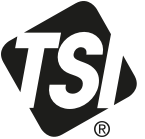The Development of Google Search: From Keywords to AI-Powered Answers
Since its 1998 rollout, Google Search has morphed from a fundamental keyword searcher into a versatile, AI-driven answer engine. To begin with, Google’s revolution was PageRank, which ordered pages in line with the quality and sum of inbound links. This propelled the web apart from keyword stuffing in the direction of content that attained trust and citations.
As the internet increased and mobile devices increased, search patterns evolved. Google implemented universal search to consolidate results (articles, photos, moving images) and down the line emphasized mobile-first indexing to reflect how people in reality scan. Voice queries by way of Google Now and then Google Assistant pressured the system to decode natural, context-rich questions not pithy keyword chains.
The next advance was machine learning. With RankBrain, Google began decoding previously unprecedented queries and user motive. BERT upgraded this by comprehending the nuance of natural language—function words, framework, and interdependencies between words—so results more precisely met what people implied, not just what they keyed in. MUM enhanced understanding between languages and formats, giving the ability to the engine to tie together affiliated ideas and media types in more developed ways.
In the current era, generative AI is reshaping the results page. Innovations like AI Overviews unify information from assorted sources to render streamlined, contextual answers, commonly enhanced by citations and follow-up suggestions. This lowers the need to access diverse links to piece together an understanding, while but still leading users to more detailed resources when they desire to explore.
For users, this advancement means speedier, sharper answers. For publishers and businesses, it honors quality, authenticity, and precision as opposed to shortcuts. Going forward, prepare for search to become further multimodal—frictionlessly weaving together text, images, and video—and more individualized, conforming to tastes and tasks. The journey from keywords to AI-powered answers is in the end about modifying search from retrieving pages to executing actions.
« result884 – Copy result582 – Copy – Copy – Copy »
 CxA certification is open to independent industry professionals who meet all education and experience prerequisites and implement commissioning processes in new and existing buildings.
CxA certification is open to independent industry professionals who meet all education and experience prerequisites and implement commissioning processes in new and existing buildings. The Energy Management Process Seminar is designed to help candidates understand the energy management process and how it can be applied and serves as the final preparation for the Energy Management Professional (EMP) exam.
The Energy Management Process Seminar is designed to help candidates understand the energy management process and how it can be applied and serves as the final preparation for the Energy Management Professional (EMP) exam.














